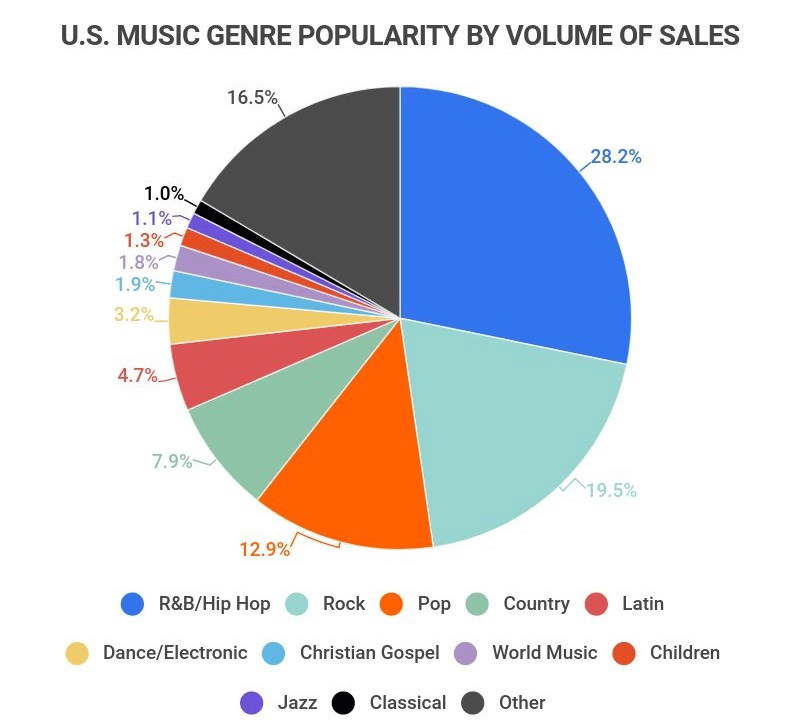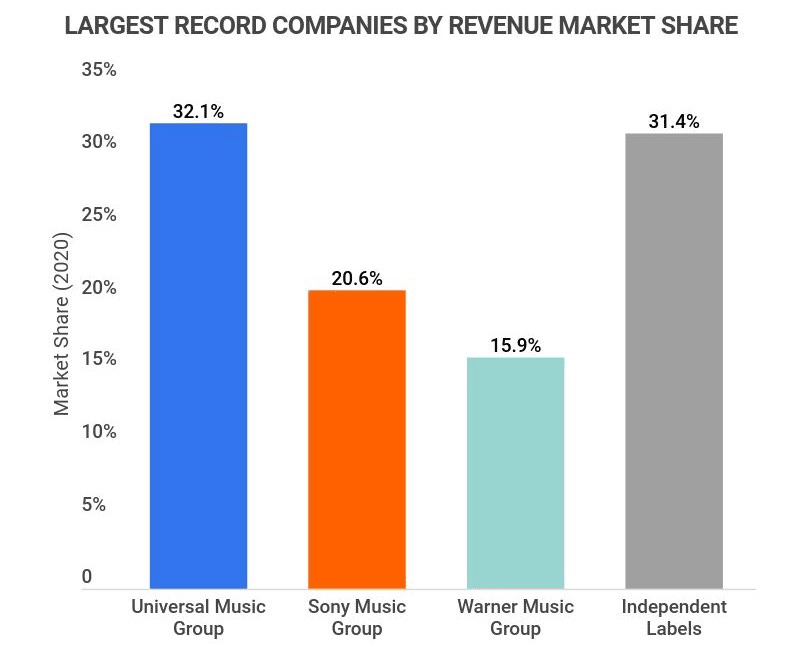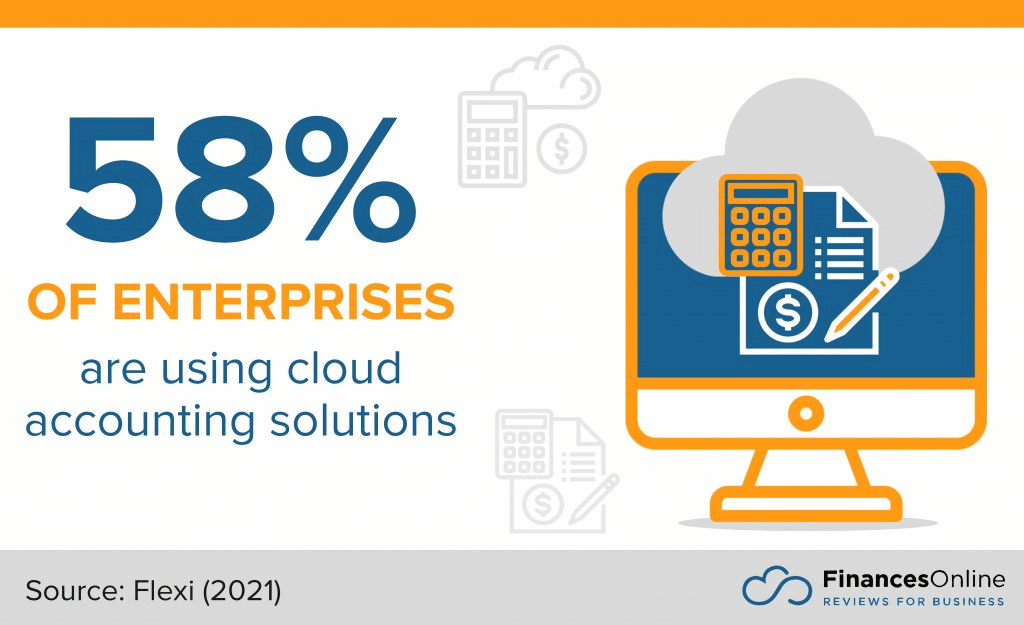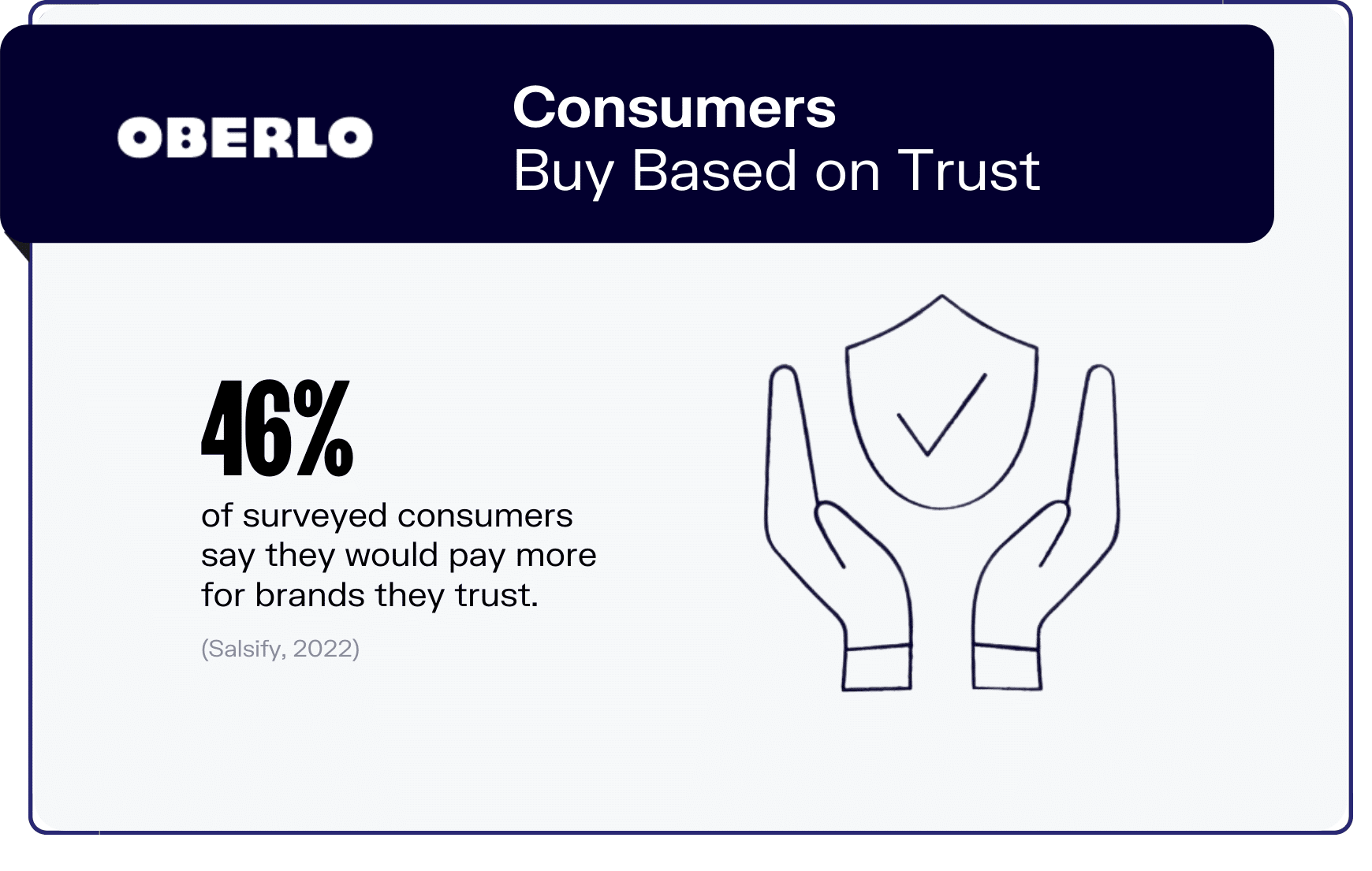Starting a record label is a good way to get involved in the music industry, partner with talented musicians, and grow a company.
According to Globe News Wire, the record production industry is in for a CAGR of 4.36% between 2017 and 2027. In 2021, the global market was valued at more than $5147 million.
Throughout this guide, you’ll learn about market research, registering your EIN, finding a digital distributor, and building your brand. If you want to know how to start a record label, the lesson starts here.
1. Conduct Record Label Business Market Research
Starting a new record label means knowing your audience, the industry, and the competition. The best way to understand these elements is through market research.

Market research happens in two parts. These are primary and secondary research.
Primary research is all done by you. This is a first-person investigation, including things like polling local music lovers, chatting with recording studios, and reaching out to potential artists.
Secondary research is information compiled by somebody else but available through the government, websites, or competitors. Secondary research examples include online reviews and industry statistics.
Throughout your research, you should focus on things like:
- Musician availability by location
- Audience demographics
- Competitor services
- Market finance figures
- Best digital distributor
A successful record label signs artists from all over. Your brand can branch out across the country, or even internationally, depending on your branding and target audience.
Choosing the Right Services for Your Record Label
Record labels record, market, and distribute music. They often choose the musicians they work with, and in a way influence the music industry. An indie label does this independently.
Services offered by professional record labels include:
- Recording
- Marketing
- Digital distribution
- Legal services
- Sales management
- Copyright registration
Depending on the size of your record label, you may offer additional services, including career management, tour management, and more.
2. Analyze the Competition
Knowing the competition in any industry is key. If you want to be the best, you need to know how others are being successful. Within the record label industry, competition is varied.

For a small successful independent record label promoting local artists, for local gigs, you’ll only need to deal with local competitors. Look at different types of competitors, including an indie label.
As you look at competitors dig into things like:
- Social media efforts
- Services offers
- Price scale
- Location
- Current number of clients signed
- Equipment used
- Income
- Online reviews and ratings
- Digital distribution outlets
A good place to start is competitor websites. Crawling a website gives you access to location, services, prices, and contact information.
While your competitors could be anywhere, here are a few of the major labels in the U.S. record label industry.
Sony Music Entertainment
Sony is a monster in the record label industry. The brand has multiple sub-labels under the Sony umbrella, including:
- RCA
- Epic
- Arista
- Arista Nashville
- Columbia
- Masterworks
- Legacy Recordings
Along with standard services offered by major labels, Sony also offers artists free counseling services, healthcare advocacy, a Legacy Unrecouped Balance Program, and real time artist tools.
Warner Music Group
Another major player in the record labels game is the Warner Music Group. Warner also has a large network of brands including:
- Uproxx
- Songkick
- HipHopDX
- EMP
- IMGN
- IN TER VAL
Warner has been in the music recording and distribution racket for more than 200 years. They represent many big names including Lizzo and Chris Stapleton.
3. Understand the Costs of Starting a Record Label
Starting a record label isn’t free. Small labels can save by leasing property and using third-party recording equipment. Large companies will pay more to buy or build recording studios complete with equipment.
Here, we’ll cover some of the more common costs associated with starting your label.
What Does It Cost to Start Your Own Record Label?
A record label has a broad scope in terms of startup costs. Some of the costs you’ll encounter as you get started include:
Some costs to consider as you get started are:
- Recording equipment
- Legal fees
- Business insurance
- Commercial property lease/purchase
- Commercial vehicle
- Utilities
- Digital distribution fees
- Business formation and registration
- Accounting costs
- Web design and upkeep
- Branding and marketing
- Security
- Marketing
Companies that build or buy their own recording studios, including the equipment it takes to record are looking at spending anywhere between $200,000 and $500,000 to get started.
Small record labels renting recording studios, or working with third parties to record artists can start for anywhere from $5,000 to $50,000.
Business Equipment/Materials
If your music label is primarily involved in signing and managing artists, you’ll likely partner with third parties.
Third-party companies can handle things like recording music, manufacturing physical albums, and packaging albums for sale. This type of label doesn’t involve a lot of large equipment. It focuses rather on administrative supplies and office furniture.
If your brand chooses to record on site, you’ll need some of the following equipment:
- Acoustic wall panels – $77 to $406 per panel (wall mounted)
- Acoustic ceiling panels – $77 to $103 per panel
- Microphones – $1,000 to $11,000 depending on brand and quality
- Equalizers – $2,000 to $7,000
- Speakers – $500 to $17,000 with prices varying by size, number, and brand
- Studio monitors – $1,000 to $9,000
- Recording consoles – $2,000 to $200,000 with the low range being small desktop digital consoles, and the high range being massive commercial consoles with hundreds of functions.
- Headphones – $300 to $1,500
Acoustic panels are available through Versare, while microphones and other recording equipment can be purchased through retailers such as VintageKing.
Cost of Renting or Leasing a Location
Building a sound studio takes a lot of work. Leasing a studio is much more effective. You can expect to pay by the square foot for commercial property.
If a studio is 500 square feet at $25 per square foot, your annual payment will be $25,500. This is often divided into monthly payments.
Business Formation
As you investigate how to start a record label, you’ll find you must register your business through the Small Business Administration. You’ll also apply for permits at this time, with the total cost to register your record label name and obtain permits being between $300 and $800.
Business Insurance
Business insurance is a necessity for a music label. Commercial general liability insurance is the best product to invest in to cover all bases. It protects against financial problems resulting in damage to a person or their property by your equipment or services.
Commercial property insurance is also important. Your recording studio is filled with high-cost equipment. Property insurance covers equipment in the event of fire, vandalism, theft, or other events mentioned in your policy.
Utilities
Expect utility costs to account for roughly 4% of your total business expenditures. Common utilities for owning your own label are:
- Water
- Heat
- Electricity
- Internet
- Phone
Recording studios pay more for power than some other business models, because of the high tech recording equipment.
What Are the Ongoing Costs of a Record Label?
As you start a record label, startup costs account for a big chunk of the expenditures your label will see through the years. There are also ongoing costs to contend with. Indie labels will have similar ongoing costs.
These are anything you need to spend money on throughout the life of your business, such as:
- Banking fees
- Employee wages
- Insurance
- Lease/rent costs
- Utilities
- Internet
- Accounting
- POS system
- Administrative supplies
- Marketing materials
Depending on the way your company handles artist merchandise and music sales, you may also have inventory to restock. But due to the nature of record labels, you might be able to generate a hefty income, especially if a couple radio stations decide to play your music.
4. Form a Legal Business Entity
Operating any type of business in the United States requires a legal entity formation. This includes independent record labels. There are four main types for a record label to choose from, including a limited liability corporation, sole proprietorship, partnership, or corporation.
Limited Liability Corporation (LLC)
An LLC or limited liability corporation is a business entity which keeps you in control of your brand. It allows you to operate legally as a record label, and separates your personal and professional assets.
Sole Proprietorship
Sole proprietorships are a good fit for a single person starting a business, or a married couple starting a company together. Like the LLC it gives you power as the label owner. Unlike the LLC, it doesn’t protect personal assets. If your company goes under, your personal wealth could be at stake.
Partnership
Partnerships operate almost exactly as a sole proprietorship with the addition of multiple partners. All partners have ownership and decision making power over the company. This is sometimes a good fit for family members buying into a brand together.
Like the sole proprietorship, a partnership doesn’t protect personal wealth.
Corporation
Corporation entities are strong and separate personal and professional wealth. They’re not often used by small startups because of the cost and extensive application process.
5. Register Your Business for Taxes
Along with the many pieces of red tape to cross during your startup, your record label must be registered for taxes. This means registering an employee identification number with the government. The EIN, also known as a federal tax ID, lets you:
- Open a business bank account
- Apply for a business credit card
- Pay employees
- File business taxes
Apply for your EIN through the U.S. Small Business Administration.
6. Setup Accounting for Success
Accounting is a tedious but necessary step in the everyday business process. As you learn how to start a record label, you’ll want an accountant for the heavy financial lifting.
Here are some accounting options for small businesses.
Accounting Software
Accounting software is a lifesaver for small businesses without the budget for ongoing bookkeeping services. It acts as a bookkeeper, offering services such as:
- Cashflow reporting
- Invoice management
- Job costing
- Inventory control
- Payroll management
- Billing

One of the best accounting software programs out there is QuickBooks. It offers multiple plans and packages based on your budget and needs.
Find an Accountant
Even if you choose to rely primarily on accounting software, an accountant should be used during tax season.
Professional accountants charge up to $400 an hour.. These experts know all the financial red tape, and ensure all t’s are crossed and i’s dotted for the IRS.
Get a Business Bank Account
A business bank account is helpful to separate professional spending and personal spending. It keeps you accountable, and makes it easier for the IRS to distinguish business spending for tax purposes.
Throughout their Small Business Tax Workshop, the IRS, recommends opening a business bank account.
Apply for a Business Credit Card
Along with your new business bank, consider a business credit card. This card shouldn’t be used for everyday purchases, but rather for big purchases, emergency purchases, or any purchase, you can pay back right away.
Business credit accounts come with benefits like low APR, and high cash back or travel mile rewards.
7. Obtain Business Licenses and Permits
With all the registering you’re doing through the U.S. Small Business Administration, don’t forget to get all licenses and permits you need for your label.
Your label may need to apply for a federal license through the Federal Communications Commission if you plan to broadcast any music.
Other local permits and licenses can be obtained through the SBA’s website by searching by state or city.
8. Get Business Insurance
The two types of business insurance required by a record label are commercial property and commercial general liability.
General liability costs between $300 and $1,500 a year for $1 million in coverage. Cost is decided by past insurance claims, age of business, and risks determined by your insurance company.
Liability insurance protects against lawsuits or medical claims where your company is at fault for damage to a person or their belongings.
Commercial property insurance will cost somewhere around $1,000 to $3,000 for $1 million i coverage. If your recording equipment is stolen or broken by an artist, property insurance covers its replacement.
9. Create an Office Space
Office space is used for administrative duties, including artist meetings, employee interviews, financial planning and reporting, and more.
Here are some options for your own record label when searching for office space.
Home Office
Home offices are a time and money saver for small businesses. This is a grea tax incentive, as the IRS provides tax breaks up to $1,500 a year for a home office. Deductions can be made individually for costs toward remodeling and utilities, or on the basis of $5 per square foot.
CoWorking Office
Coworking offices are one of the best business inventions of our time. Like a vacation time share, a coworking office is shared among different users at alternate times.
One of the top brands in coworking offices is WeWork. They offer custom plans for private, semi private, and even shared office spaces in cities across the United States.
Commercial Building Office
A commercial office space is a fine investment if you have a large company and want the official workspace. Commercial properties are expensive and come with long-term lease commitments. They’re not well suited to small startups.
10. Source Your Equipment
Sourcing top-notch record label equipment isn’t easy. A lot of thought goes into which equipment is best, but also affordable. Within your business plan and budget, you can determine your allotted funds for equipment. Once you know what you’re working with there are two sourcing options, new and used.
Buy New
New recording equipment has a long shelf life, usually comes with a warranty, and has all the latest and greatest features and gadgets included.
The downside is that, of course, you’ll spend more buying new than used. Or, you’ll look for a deal buying new and might forego better quality or features for a new product of a lower quality make.
Shop for new recording equipment through companies like Sweetwater.
Buy Used
Used recording equipment is another option for new record labels. This saves money, and sometimes offers up great finds in terms of brand names at discounted costs.
Check out Craigslist and Facebook Marketplace for used options. You should also visit Vintage King.
11. Establish Your Brand
To be the best, your brand must be recognized among the best. This takes a lot of marketing, and development. Some of the ways to establish your record label brand include the following.

Get a Business Phone Number
A business phone number indicates professionalism and accountability. You can more easily monitor business calls, and provide new clients and potential clients with a place to get in touch.
Google Voice starts at $10 a month to add a business line, and can be used from any device that connects to the internet.
Create a Logo & Brand Assets
Your logo is a symbol of your brand to clients and competitors. It shows the world that you’re a serious player in your industry.
Check out Looka to create a hassle-free logo in minutes. Looka uses new AI technology to design logos based on your personal preferences.
Create Business Cards and Signage
Business cards are a great canvas for your new logo. They’re also a wonderful example of a traditional marketing tool, and one with a big impact.
Vistaprint is the best place to begin your business card and sign search. The brand prints everything from stickers and labels to business cards and marketing merchandise.
Purchase a Domain Name
A domain name tells clients where to find you. It also establishes you as an official record label. A good place to shop for a .com address at a reasonable rate is Namecheap.com.
Build a Website
Websites should be easy to navigate, quick to load, and include all the information potential clients need to choose you as their record label.
If you’re not tech savvy and want to outsource web design, try platforms like Fiverr. Fiverr connects you to freelancers across a wide range of industries with a variety of skills, including web design.
12. Join Associations and Groups
Joining record label groups and associations is a good way to network your brand and get to know the competition. It also opens the door to ask questions, get advice, and offer your own support to others.
Some associations to consider include The Recording Industry Association of America and The American Association of Independant Music.
Local Associations
Local groups are especially useful to record label owners because it connects you to your immediate demographic. Find local associations by searching, “record label association in” and add your city and state to the search phrase.
Local Meetups
Meeting in person is invaluable for record label business owners. Networking events, conferences, and trade shows are all great places to meet the faces of your industry.
If you’re not sure where to find these events, check out Meetup. The Meetup platform connects people across a range of industries from all over the U.S. Simply enter your industry and location and see local events appear. If you don’t see one you like, start your own Meetup.
Facebook Groups
Facebook groups are an underappreciated form of networking and outreach. They’re free to join, and connect record labels from all over the world. Some of the top Facebook groups to check out include:
- Commercial Recording Studio Group
- Recording Studio
- Labels, Artists, Distributions, and Music Promotions
13. Focus on Marketing
What is a business without marketing? Not a well-known business. For a record label, being known to your potential client base is important. It’s even more important that you’re known throughout the music industry at large.
Marketing comes in many forms. Here are some of the ways to begin marketing your brand.
Ask Friends, Family, and Coworkers
Friends and family members can do a lot more than they realize to kickstart marketing for your brand. Some fo the ways loved ones can support you include:
- Sharing content on social media
- Leaving online reviews for your label
- Spreading the word about your label at work or social events
- Handing out business cards
- Putting up flyers
If you have any family, friends, or coworkers who play music, they might even consider signing as clients.
Digital Marketing Ideas
Digital marketing plays a massive role in educating the masses about your brand. With so much of the world’s business happening online, it makes sense that this marketing medium has come so far. Some ways to marketing your record label digitally include:
- Google and Facebook ads
- Starting a blog
- Recording videos for YouTube and TikTok
- Sharing content through social media
- Offering recording discounts online
- Including QR codes on mailers
- Backlinks
For a music business, a lot of digital marketing will include sound clips of your client’s work. This is a great way to get the music out without offering the whole song for free.
Traditional Marketing Ideas
Traditional marketing is anything customers and clients can see or touch. While the digital world has taken over much of the music industry, there’s still a place for traditional marketing mediums, such as:
- Billboards
- Newspaper ads
- Direct mail
- Coupons
- Flyers
- Business cards
- Bus signs
- Park bench signs
You can also host events to get artist songs heard and promote your business. Send invitations to a grand opening as your first and grandest traditional marketing gesture.
14. Focus on the Customer
In the record label industry there are two customers. Your clients who record music, and your artist’s fans and customers who buy the music you make.
Focusing on the customer is a great way to build a lasting relationship with artists you sign, and with the fans they make music for. Some ways to do this include:
- Customer loyalty offers
- Custom contracts based on type of artist and individual performance goals
- Helping artists with branding, marketing, merchandising, and more
- Selling direct to customers through your website
- Working closely with artists to fulfil overall dream
As a record label you have a lot of power to find new talent, nurture it, and present it to the world. Working closely with your signed artists, and focusing on their customers will ensure your clients hit it big.
We hope this guide on how to start a record label has been useful. While each step shows you the basics of opening your business, this unique industry has plenty of room for customization. Be original, and find your own way to make music.

Conti creates an immersive cinematic journey, captivating audiences worldwide.